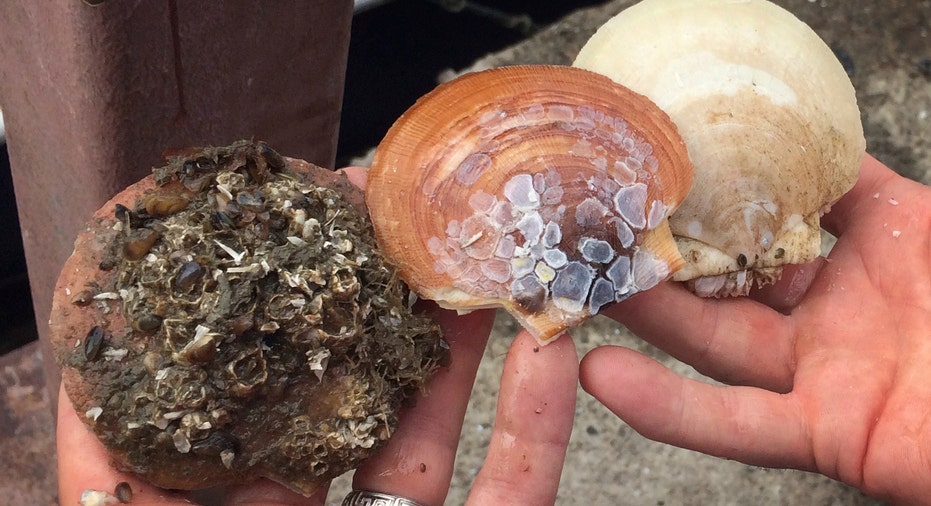Mainers look to farms to boost scallops, a wild staple

PORTLAND, Maine – Scallops are among the most valuable and beloved seafood items in the U.S., and a group of Maine firms thinks farming them might be a way of keeping up with increasing demand.
The Atlantic sea scallop is a New England mainstay, but unlike oysters and mussels, they're almost exclusively harvested from the wild on the East Coast. A loose consortium of aquaculture businesses off the Maine coast is looking to change that by making scallop farming a viable option here. It's one of the first serious attempts to farm Atlantic sea scallops in the United States.
One of the groups, Bangs Island Mussels of Portland, is using the largest amount of Japanese scallop farming equipment ever used by an American scallop farm. The Japanese have farmed scallops for decades, and Bangs Island hopes to learn from their example, said Matthew Moretti, the company's co-owner.
Bangs Island began growing scallops at its farm in Casco Bay three years ago, and could have a few thousand scallops to market as soon as this fall, Moretti said. Maine scallops sometimes sell for $25 per pound, but the fishery only takes place in the winter, and farming represents a chance to bring the product to customers year round, he said.
"Scallops are higher value, and there's a traditional fishery here," he said. "It would be great to expand it."
Farming scallops in the cold waters of Maine is no small feat. It's a multistep process that ultimately allows the shellfish to grow to maturity much faster than wild harvesting, said Hugh Cowperthwaite, director of fisheries projects for Coastal Enterprises Inc. of Brunswick. CEI is working with Bangs Island on the project and secured $500,000 in grant money used to buy the Japanese gear and help pay for its use.
Farmers must first collect larval scallops from the ocean. The baby scallops are then placed in hanging nets on the farm, which is a leased piece of ocean, to grow. The scallops are retrieved for cleaning and measuring, and larger scallops are returned to the farm to be hung individually. The whole process takes about three years.
When the scallops eventually reach the market, the story of how they're farmed could be part of their appeal, Cowperthwaite said.
"The goal is to hit a niche market," he said. "There's a story behind this that you can tell."
The National Oceanic and Atmospheric Administration, which manages U.S. fisheries, said it's aware of scallop farming initiatives and trials in New England, but it doesn't know of any firms that are ready to offer commercial production. There are 17 aquaculture leases in Maine that are authorized to grow scallops, but too few are growing them for any data to be available, said Jeff Nichols, a spokesman for the Maine Department of Marine Resources.
The introduction of farmed scallops to the market could present new challenges for wild scallop harvesters, who already must deal with foreign competition and extensive government regulations. But Alex Todd, who fishes for scallops off Maine, said a little competition could actually benefit the fishery by creating more demand.
"Everything scares you a little bit. But it offers a year round supply, whereas the Maine season is so short," Todd said. "At first glance, I think there might be a plus to it."



















